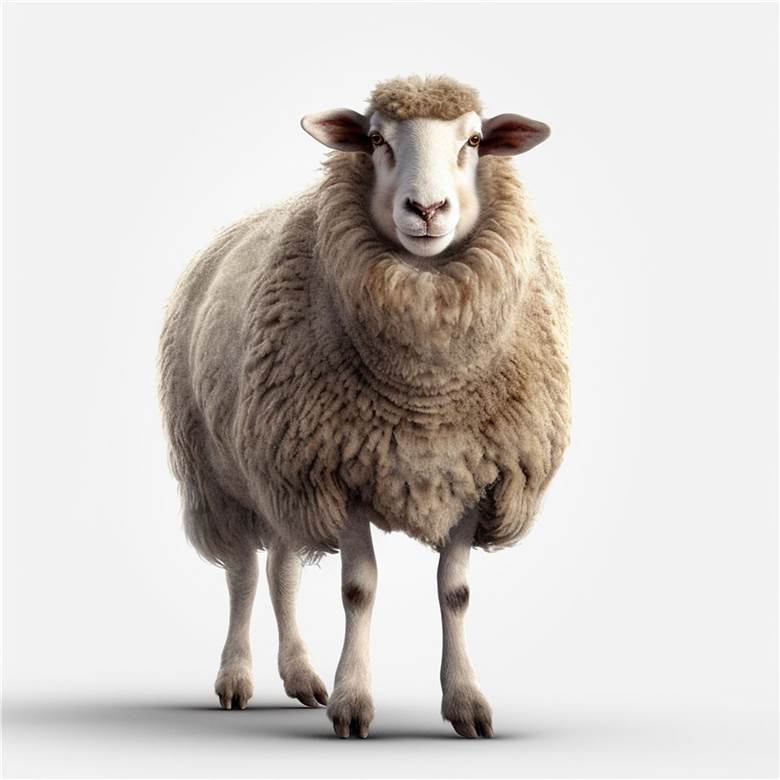Sheep is a commonly used animal in biological research. It plays a very important role in immunological research, physiological experiments, experimental surgery, microbiology teaching practice, and medical testing. Like goats, sheep are also good hosts for antibody products. Therefore, monoclonal sheep antibodies have great potential for biomedical, veterinary, and agricultural applications. Based on our rich field experience and advanced monoclonal sheep antibody preparation platform, Creative Biolabs provides comprehensive antibody discovery services to support monoclonal sheep antibody production.

Sheep are mammals of the genus Sheep in the order Artiodactyla. They are generally characterized by a docile temperament, emulation, and strong herdability. Sheep are generally seasonal breeding animals. The general breeding season is September to November. The duration of estrus is 1-2 days, and each litter produces 1-5 pups. Sheep play an important role in biochemical and pharmaceutical research.
In immunological studies, sheep are often used to prepare immune sera against normal human whole blood serum. In brief, sheep red blood cells were used as the immune antigen, and healthy male rabbits were injected intradermally on the back and intravenously at the ear margin several times to stimulate the body to produce the corresponding antibodies, and rabbit serum was isolated by bloodletting from the carotid artery. The potency of the prepared serum antibody (hemolysin) was detected using a hemolytic titration assay and indirect ELISA.
Sheep erythrocytes are the main experimental material for the serologic complement fixation test (CFT). CFT is a serological test for the detection of unknown antigens or antibodies with the participation of complement, using sheep erythrocytes and hemolysin as an indicator system. The method applies to particulate or soluble antigens and is commonly used to detect antibodies in the serum of patients infected with certain viruses, rickettsiae, and spirochetes, as well as for the typing of certain viruses.
In addition, bluetongue in sheep can be used in the study of related diseases such as hydrocephalus in humans. Hydrocephalus is an abnormal increase in the amount of cerebrospinal fluid in the cranial cavity caused by a variety of disorders. It is a common yet complex clinical disorder. At present, the pathogenesis, clinical features, and pathophysiology of hydrocephalus are still unanswered. Currently, methods commonly used to prepare models of hydrocephalus include occlusion of the cerebrospinal fluid pathway, induction through the introduction of teratogens, viral or bacterial infections, genetics, and genetic means of infection. The bluetongue disease in sheep is also an important way to prepare human hydrocephalus. It has made a significant contribution to human understanding of hydrocephalus.
Monoclonal sheep antibodies have many advantages. For example, sheep-based antibody preparation systems are more mature. Sheep can be used to prepare larger quantities of serum or antibodies. The commercialization scale of secondary antibody products from sheep is more widespread.
Obtaining antibodies by phage display technology is a very convenient and fast way. Generally, any desired high-affinity specific antibody can be obtained from natural or semi-synthetic antibody libraries. Many medium and high affinity antibody molecules are now available by this route, and the specificity of these antibodies meets general research requirements. In many cases where the specificity and affinity of the antibodies are more demanding, immune antibody libraries can be constructed. An immune antibody library can be enriched with antigen-specific antibodies, and a high percentage of the library encodes functional antibodies that recognize specific immunogens.
Phage display library construction can mimic natural antibody libraries, eliminating the tedious and time-consuming immunization process. It not only greatly improves the preparation of monoclonal antibodies, which are urgently needed in scientific research and clinics, but also provides a powerful screening capability against arbitrary antigens or even unknown antigens. However, due to technical limitations, there are still many problems to be solved in phage display technology. For example, how to ensure the diversity and presentation efficiency of antibody libraries while at the same time increasing the library capacity, how to improve the antibody yield, and so on. In any case, constructing antibody libraries with large library capacity and good diversity is the direction of future research.
Creative Biolabs has a wealth of knowledge and experience in monoclonal antibody discovery. We would be happy to share with you our knowledge and experience related to monoclonal sheep antibody discovery.
All listed services and products are For Research Use Only. Do Not use in any diagnostic or therapeutic applications.